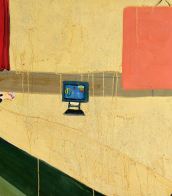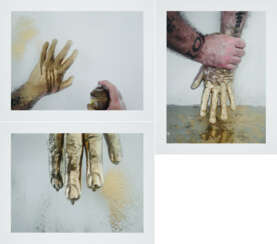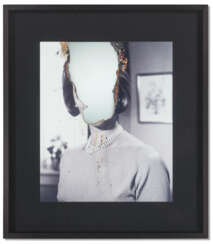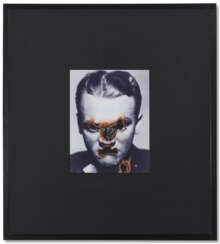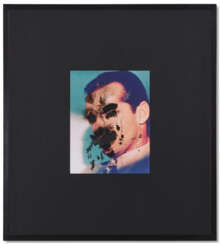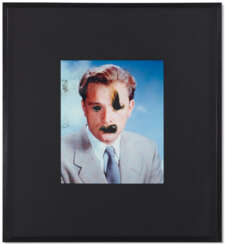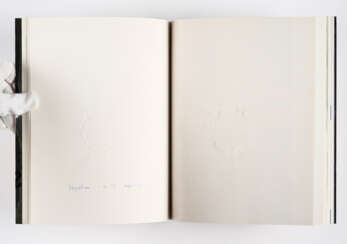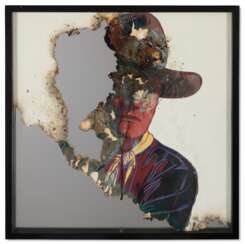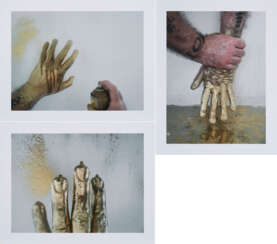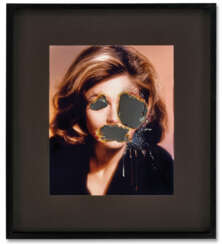Douglas Gordon (1966) — Auction price
Douglas Gordon is a Scottish artist. He won the Turner Prize in 1996, the Premio 2000 at the 47th Venice Biennale in 1997 and the Hugo Boss Prize in 1998. He lives and works in Berlin, Germany.
Much of Gordon's work is seen as being about memory and uses repetition in various forms. He uses material from the public realm and also creates performance-based videos. His work often overturns traditional uses of video by playing with time elements and employing multiple monitors.

Douglas Gordon is a Scottish artist. He won the Turner Prize in 1996, the Premio 2000 at the 47th Venice Biennale in 1997 and the Hugo Boss Prize in 1998. He lives and works in Berlin, Germany.
Much of Gordon's work is seen as being about memory and uses repetition in various forms. He uses material from the public realm and also creates performance-based videos. His work often overturns traditional uses of video by playing with time elements and employing multiple monitors.

Douglas Gordon is a Scottish artist. He won the Turner Prize in 1996, the Premio 2000 at the 47th Venice Biennale in 1997 and the Hugo Boss Prize in 1998. He lives and works in Berlin, Germany.
Much of Gordon's work is seen as being about memory and uses repetition in various forms. He uses material from the public realm and also creates performance-based videos. His work often overturns traditional uses of video by playing with time elements and employing multiple monitors.

Douglas Gordon is a Scottish artist. He won the Turner Prize in 1996, the Premio 2000 at the 47th Venice Biennale in 1997 and the Hugo Boss Prize in 1998. He lives and works in Berlin, Germany.
Much of Gordon's work is seen as being about memory and uses repetition in various forms. He uses material from the public realm and also creates performance-based videos. His work often overturns traditional uses of video by playing with time elements and employing multiple monitors.
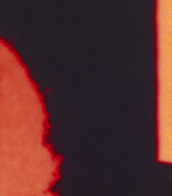
Douglas Gordon is a Scottish artist. He won the Turner Prize in 1996, the Premio 2000 at the 47th Venice Biennale in 1997 and the Hugo Boss Prize in 1998. He lives and works in Berlin, Germany.
Much of Gordon's work is seen as being about memory and uses repetition in various forms. He uses material from the public realm and also creates performance-based videos. His work often overturns traditional uses of video by playing with time elements and employing multiple monitors.
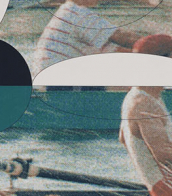
Douglas Gordon is a Scottish artist. He won the Turner Prize in 1996, the Premio 2000 at the 47th Venice Biennale in 1997 and the Hugo Boss Prize in 1998. He lives and works in Berlin, Germany.
Much of Gordon's work is seen as being about memory and uses repetition in various forms. He uses material from the public realm and also creates performance-based videos. His work often overturns traditional uses of video by playing with time elements and employing multiple monitors.

Douglas Gordon is a Scottish artist. He won the Turner Prize in 1996, the Premio 2000 at the 47th Venice Biennale in 1997 and the Hugo Boss Prize in 1998. He lives and works in Berlin, Germany.
Much of Gordon's work is seen as being about memory and uses repetition in various forms. He uses material from the public realm and also creates performance-based videos. His work often overturns traditional uses of video by playing with time elements and employing multiple monitors.

Douglas Gordon is a Scottish artist. He won the Turner Prize in 1996, the Premio 2000 at the 47th Venice Biennale in 1997 and the Hugo Boss Prize in 1998. He lives and works in Berlin, Germany.
Much of Gordon's work is seen as being about memory and uses repetition in various forms. He uses material from the public realm and also creates performance-based videos. His work often overturns traditional uses of video by playing with time elements and employing multiple monitors.
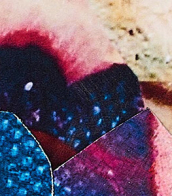
Douglas Gordon is a Scottish artist. He won the Turner Prize in 1996, the Premio 2000 at the 47th Venice Biennale in 1997 and the Hugo Boss Prize in 1998. He lives and works in Berlin, Germany.
Much of Gordon's work is seen as being about memory and uses repetition in various forms. He uses material from the public realm and also creates performance-based videos. His work often overturns traditional uses of video by playing with time elements and employing multiple monitors.
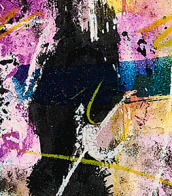
Douglas Gordon is a Scottish artist. He won the Turner Prize in 1996, the Premio 2000 at the 47th Venice Biennale in 1997 and the Hugo Boss Prize in 1998. He lives and works in Berlin, Germany.
Much of Gordon's work is seen as being about memory and uses repetition in various forms. He uses material from the public realm and also creates performance-based videos. His work often overturns traditional uses of video by playing with time elements and employing multiple monitors.
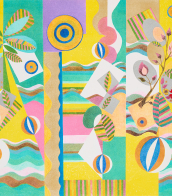
Douglas Gordon is a Scottish artist. He won the Turner Prize in 1996, the Premio 2000 at the 47th Venice Biennale in 1997 and the Hugo Boss Prize in 1998. He lives and works in Berlin, Germany.
Much of Gordon's work is seen as being about memory and uses repetition in various forms. He uses material from the public realm and also creates performance-based videos. His work often overturns traditional uses of video by playing with time elements and employing multiple monitors.
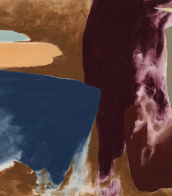
Douglas Gordon is a Scottish artist. He won the Turner Prize in 1996, the Premio 2000 at the 47th Venice Biennale in 1997 and the Hugo Boss Prize in 1998. He lives and works in Berlin, Germany.
Much of Gordon's work is seen as being about memory and uses repetition in various forms. He uses material from the public realm and also creates performance-based videos. His work often overturns traditional uses of video by playing with time elements and employing multiple monitors.
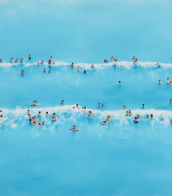
Douglas Gordon is a Scottish artist. He won the Turner Prize in 1996, the Premio 2000 at the 47th Venice Biennale in 1997 and the Hugo Boss Prize in 1998. He lives and works in Berlin, Germany.
Much of Gordon's work is seen as being about memory and uses repetition in various forms. He uses material from the public realm and also creates performance-based videos. His work often overturns traditional uses of video by playing with time elements and employing multiple monitors.
